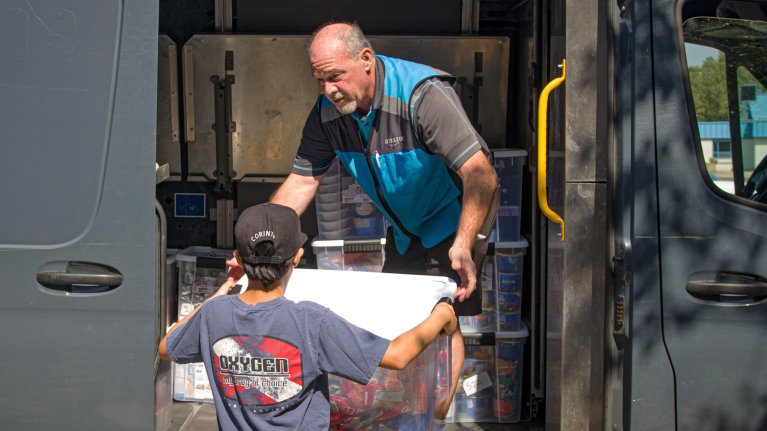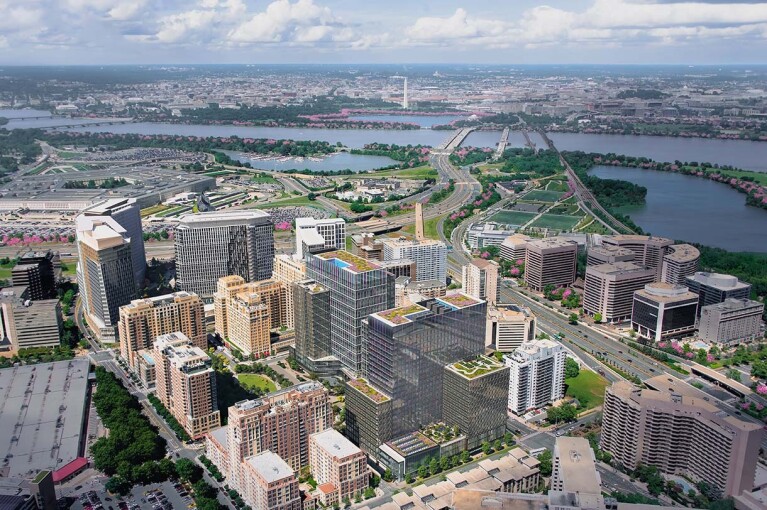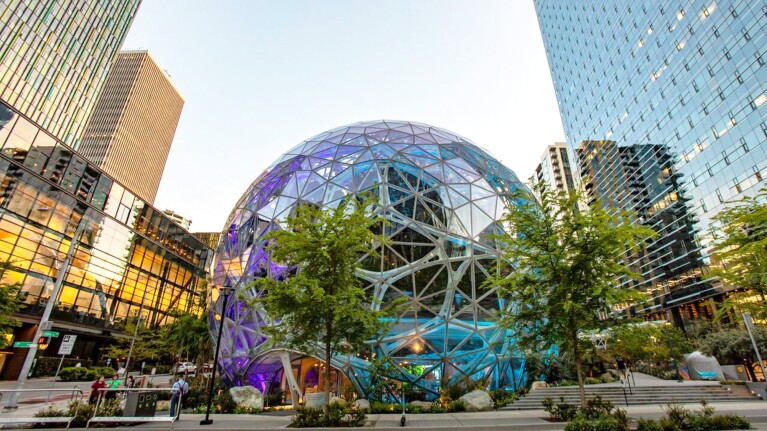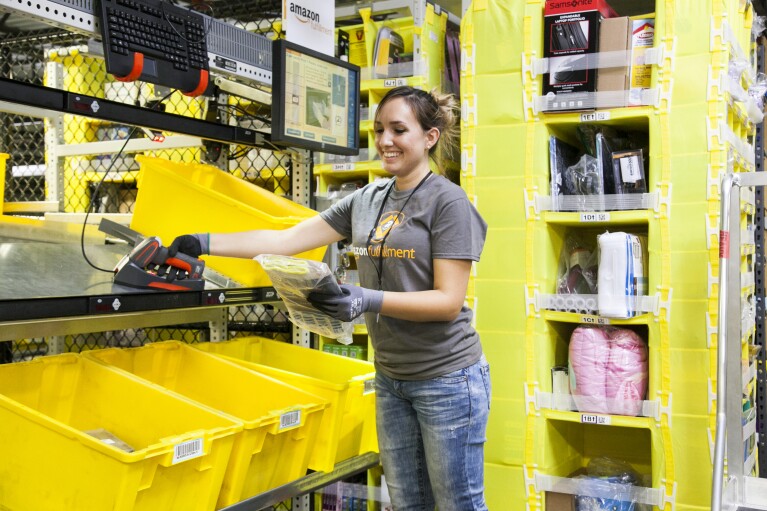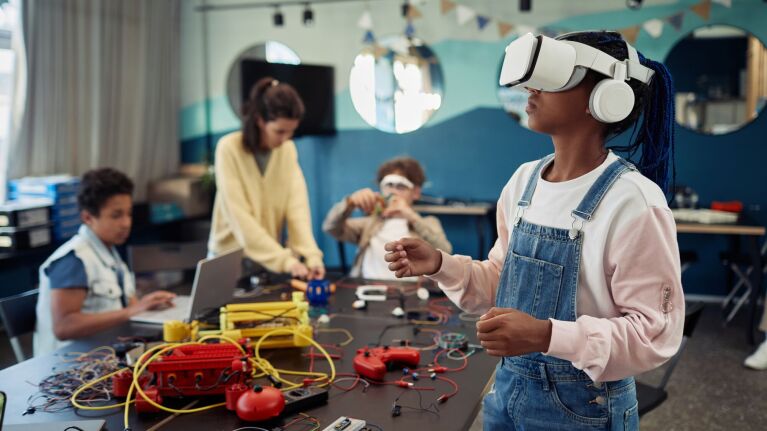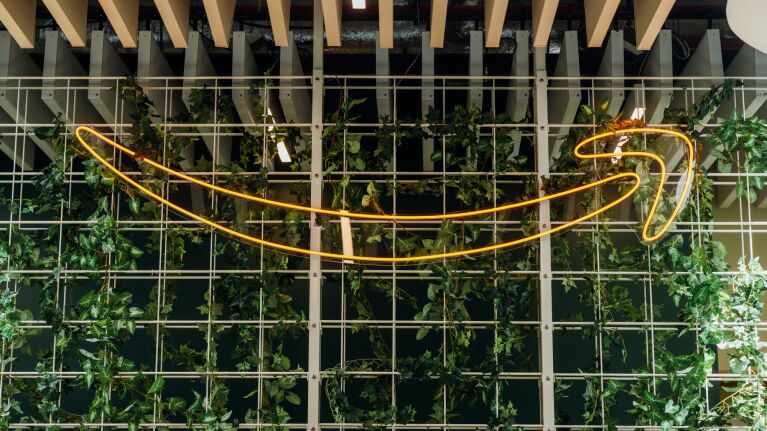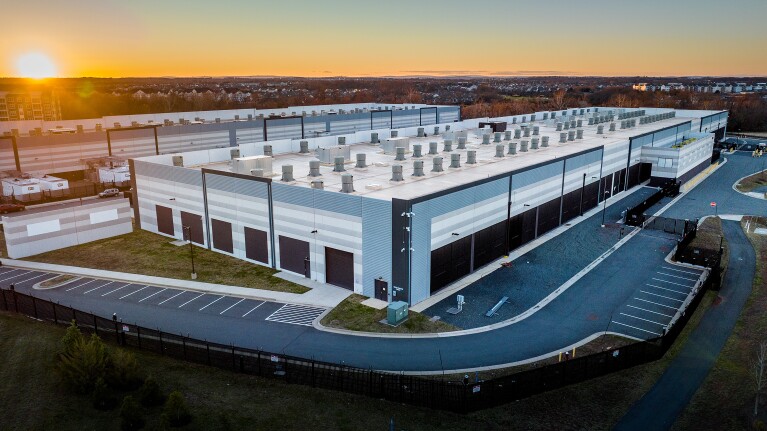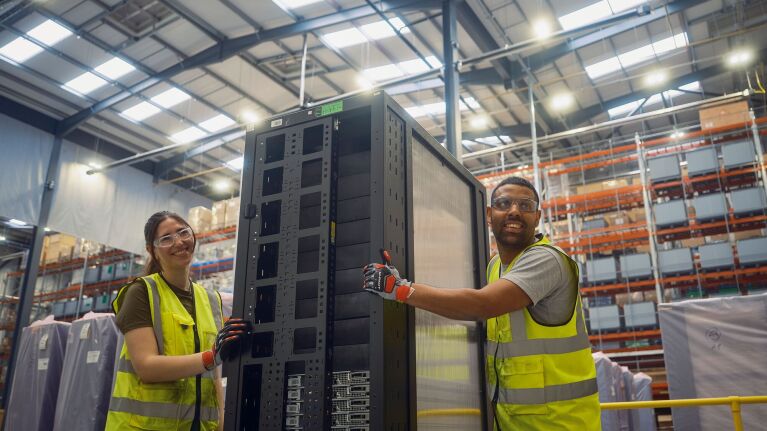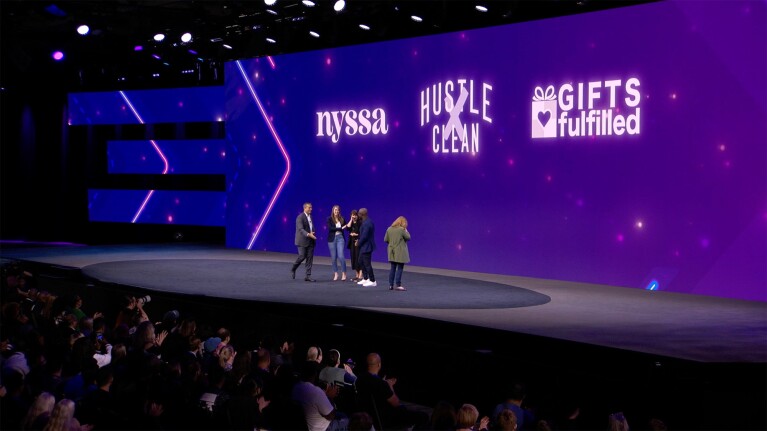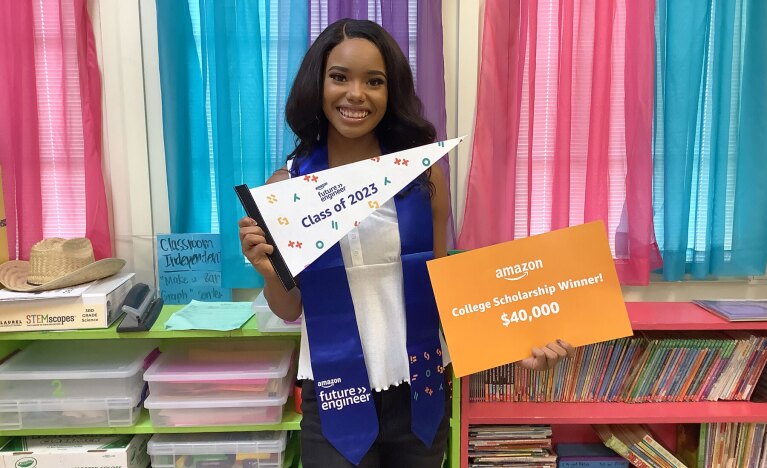- Amazon Future Engineer provides free community access to STEM opportunities and resources, including virtual field trips, hands-on challenges, lesson plans, and scholarships.
- We work with thousands of partners to address a range of critical social needs in our hometown communities and across the U.S.
- Learn how we invest in the community, help power the local economy, and support our employees in Arlington, Virginia.
- Learn how we invest in the community, help power the local economy, and support our employees in the Puget Sound region.
- New research by Oxford Economics found that investments from large companies led to new business growth and lower violent crime rates in counties across the U.S.
- AWS Education Equity Initiative provides education organizations with technologies to build digital learning innovations for underrepresented communities.
- From fulfillment centers to data centers to grocery stores, we’re testing and scaling new tech to push toward net-zero carbon emissions by 2040.
- Get the latest updates on how Amazon supports small businesses, creates jobs, sets up sustainability initiatives, and develops educational programs in data center communities.
- Economists looked at Amazon’s U.S. investments—from job creation to powering local economies—here’s what they found.
- Through our re:Cycle Reverse Logistics hub, we're diverting more than 99% of decommissioned hardware from landfills.
- Amazon’s 2023 Accelerate conference recognized sellers who are a ‘force for good’ in their local communities by combining their love for giving back with running their growing businesses.
- High school seniors received a $40,000 Amazon Future Engineer Scholarship to study computer science starting this fall with a paid internship opportunity.

